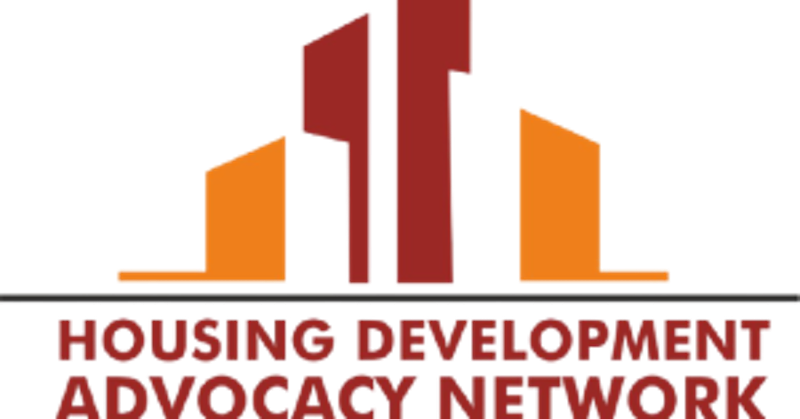The Housing Development Advocacy Network (HDAN) has issued a stark warning about the escalating housing crisis in the Federal Capital Territory (FCT), Abuja, Nigeria. The organization highlights the crippling effect of soaring rent prices and exorbitant agency fees on residents, particularly civil servants, artisans, and low- to middle-income earners. HDAN argues that the current situation is unsustainable and demands immediate legislative intervention from the National Assembly to protect vulnerable residents. The core of their argument centers around the widening gap between housing supply and demand, exacerbated by inflation, population growth, and rapid urbanization. This imbalance has created a fertile ground for exploitative practices by landlords and agents, pushing the dream of decent and affordable housing further out of reach for many.
HDAN paints a grim picture of the current rental landscape in Abuja. Securing even a basic self-contained apartment requires an annual rent of approximately N1 million, while a three-bedroom flat can command as much as N3.5 million. These figures represent a significant portion of the average household income, leaving tenants with little financial wiggle room. Adding to the burden are hefty agency fees, typically ranging from 20% to 25% of the annual rent, along with caution fees and often-unjustified maintenance charges. These additional costs further strain household budgets, forcing many to seek refuge in distant satellite towns where accommodation is more affordable. However, this trade-off comes at a price – longer commutes, reduced productivity, increased financial strain due to transportation costs, and a diminished overall quality of life.
The advocacy group emphasizes that the current situation isn’t merely an economic issue but a social justice crisis. The lack of rent control mechanisms and effective regulatory oversight has created an environment ripe for exploitation, exacerbating inequality and contributing to social ills such as homelessness and the proliferation of informal settlements. The absence of a clear legal framework allows landlords and agents to dictate terms, often with little regard for the financial constraints of tenants. HDAN argues that this unchecked power dynamic fuels a vicious cycle of escalating rents and diminishing affordability, trapping residents in a precarious housing situation.
To combat this crisis, HDAN proposes a multi-pronged approach. Firstly, they call for the enactment of a Rent and Agency Control Bill by the National Assembly. This legislation is crucial to establish a legal framework that regulates rent increases and curbs excessive agency charges, protecting tenants from arbitrary hikes and exploitative practices. Secondly, HDAN urges the Federal Government, through the Ministry of Housing and Urban Development, to prioritize the development of low-cost housing estates specifically designed for civil servants and artisans. This intervention would inject much-needed affordable housing units into the market, alleviating the current supply-demand imbalance.
Further recommendations include the establishment of an FCT Housing Authority. This dedicated body would be responsible for enforcing rent control measures, overseeing agency practices, and ensuring compliance with housing regulations. This would provide a consistent and transparent mechanism for monitoring the housing market and protecting tenant rights. Additionally, HDAN advocates for periodic oversight of housing policies by the House Committee on Housing and Habitat. This oversight would ensure accountability and transparency in the implementation of housing programs and policies, contributing to a more equitable and sustainable housing market.
HDAN’s Executive Director, Festus Adebayo, underscores the urgency of the situation. He points out that the current trajectory of the Abuja housing market is unsustainable and requires immediate action. He argues that affordable housing is not a luxury but a fundamental right, and lawmakers have a moral obligation to prioritize its provision. Mr. Adebayo warns that failure to act decisively will only deepen the crisis, further marginalizing vulnerable residents and widening the gap between the haves and have-nots. He emphasizes the interconnectedness of housing affordability with broader societal well-being, highlighting the negative impact on productivity, economic growth, and overall quality of life when housing becomes a source of constant stress and financial strain. Finally, HDAN urges lawmakers to collaborate with the executive arm of government to address the rising cost of building materials, recognizing that this factor significantly contributes to the overall expense of housing development and, consequently, the affordability crisis. This holistic approach, combining legislative action, government intervention, and regulatory oversight, is presented as a necessary pathway to creating a more just and sustainable housing market in the FCT. HDAN, a research-driven, non-profit, volunteer-based NGO dedicated to promoting affordable housing across Africa, leverages its membership of over 5,000 professionals in the housing and construction industry to advocate for sustainable housing solutions. They believe that addressing the housing crisis in Abuja will require a concerted effort from all stakeholders to create a more equitable and accessible housing market for all residents.














